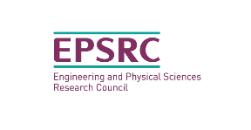Academic Innovation 2018
Academic commercial enterprise
Winner
Prolaris prognostic test for prostate cancer - Jack Cuzick, Wolfson Institute of Preventive Medicine
A prognostic test to predict ten year prostate cancer specific mortality has now been commercially rolled out for use in the United States to guide medical management of prostate cancer patients. In a country with an estimated 161,360 new cases of prostate cancer each year, prolaris has changed treatment recommendations in 32-65% of cases of prostate cancer.
Finalists
Augmented Instruments Ltd - Andrew McPherson, School of Electronic Engineering and Computer Science
Bela is an open-source embedded hardware platform for creating musical instruments and interactive audio systems. In September 2016, following a successful Kickstarter campaign raising ~£55k, Augmented Instruments Ltd was established to further commercial Bela. To date 1000+ units have been shipped worldwide to makers, musicians and researchers.
Actual Experience - Jonathan Pitts, School of Electronic Engineering and Computer Science
Actual Experience's analytics provide the digital Voice of the Customer. This is a real-time, data-driven view of what end users would say about the quality of a company's digital products and services, and why. The insights can be used to make continuous improvements to their business performance.
Academic non-commercial enterprise
Winner
Island and the Interval and the Instant - Steven Eastwood, School of Languages, Linguistics and Film
ISLAND is a ground-breaking artists’ documentary, the result of 12-months filming at the Earl Mountbatten hospice on the Isle of Wight. over the year, Dr Steven Eastwood, artist-filmmaker and reader in film practice in School of Languages, Linguistics and Film, worked closely with people nearing the end of life. showing rarely seen and intensely private events, the film follows the progression of illness for four characters and, for one, the last hours of life, the moment of death, and after death care. Island sensitively bears witnesses to the temporality and phenomena of dying.
Finalists
Globe project- Janetka Platum and Olivia Sherringham, School of Georgraphy
Globe is a mobile, dynamic and evolving piece of art that contributes new ways of researching and understanding home and migration. Each rotation refers to the local and the global, challenging our perception of home territory and geographical boundaries, questioning ideas of who falls inside and outside, them and us.
Migrant Literature Walks – Nadia Valman, School of English & Drama
Nadia Valman created free guided walks using literature by migrant writers from the mid-nineteenth century to the 1960s to explore experiences of displacement, expectation and belonging, to see london anew, and to stimulate discussion of how the metropolis has been shaped by its long history of migration.
Innovation of the year
Winner
Weight-saving metal components achieved by length-scale engineering - Andy Bushby, School of Engineering and Materials science
Andy Bushby developed a simple manufacturing process for complex 3D shaped metal engineering components in collaboration with a small UK company. The process produces higher strength from less material, which is important for hi-tech applications such as satellites.
Finalists
Sound Effect Synthesis - Josh Reiss, School of Electronic Engineering and Computer Science
Professor Reiss and his team have created intelligent processing tools that automate much of the audio production process. Reiss’s sound synthesis research aims to change the way sound effects are produced across the creative industries. His spin-out company LandR has released highly successful, award-winning automated music mastering service that is now used by hundreds of thousands of musicians and sound engineers.
Non-invasive early detection of pancreatic cancer in urine samples- Tatjana Crnogorac-Jurcevic, Barts Cancer Institute
Pancreatic adenocarcinoma (pdac) is one of the deadliest cancers, for which no significant improvements have been made in the last several decades. Biomarkers have recently been discovered that can differentiate early stage pdac patients from healthy individuals.
Entrepreneur of the year
Winner
Josh Reiss, School of Electronic Engineering and Computer Science
in 2012, Josh Reiss formed company LandR, from his sound synthesys research. Reiss has secured several innovateuk grants to support commercialisation of this. his team aims to form a new spin-out company based around this technology. The work has been presented to sound design experts across target markets, a business plan has been developed, and a memorandum of understanding between QMI and industry partners has been established.
Finalists
Bill Gillin, School of Physics and Astronomy
Optical communication is the future of high speed data networks. Although all long-distance data is transferred at the speed of light in optical fibres, the technology required to do this is too expensive for shorter distance links. Chromosol aims to solve this by integrating novel organic lasers onto silicon chips to reduce power consumption and data-transfer bottlenecks.
Paul Heritage, People’s Palace Projects
Recognised as an example of a “highly connected academic” by AHRC, Paul Heritage has collaborated with well over 500 individuals and organisations in twenty years of work through QMUL’s charitable subsidiary, People’s Palace Projects. In combination with Brazilian sister NGO People’s Palace Projects do Brasil, the UK charity PPP has achieved an average annual turnover of over £1 million for the past five years, raised by heritage from sources including consultancy, earned income, partnership contributions from cultural organisations, charitable and research grants.
